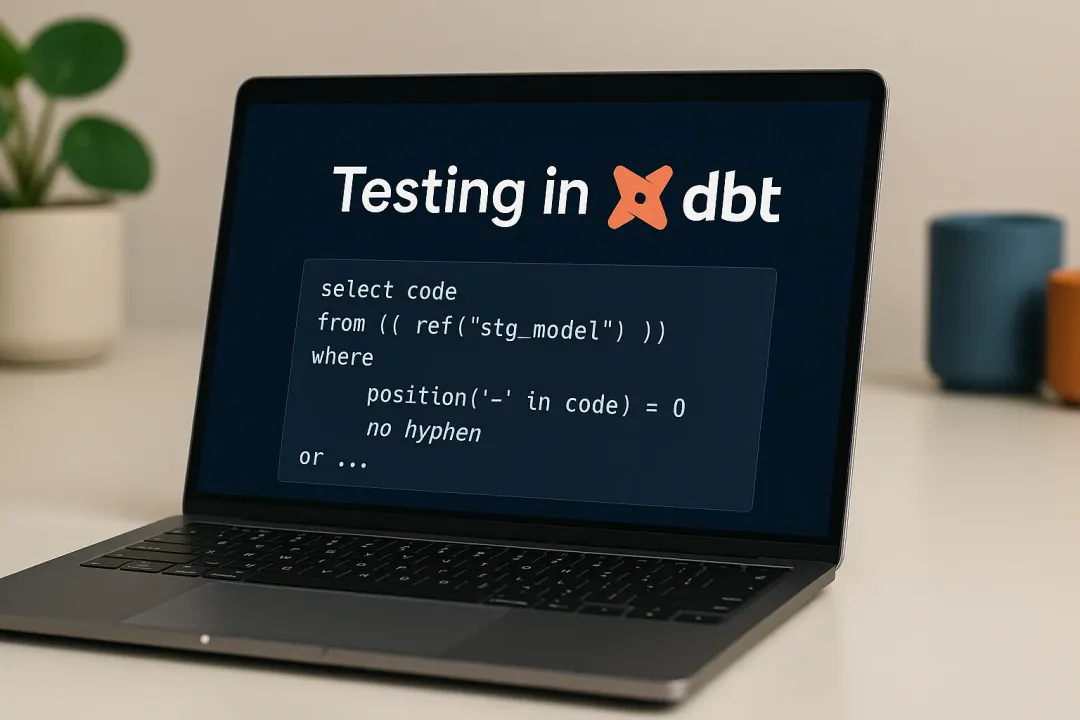
Adam Bolinger
12 June 2023, 5 min read

What's inside
- Why do organizations use DevOps?
- What is DevOps?
- How do we use DevOps in our projects?
- Our DevOps best practices
- Contact us
DevOps is a buzzword that means many different things to many people. That's why it may be challenging to understand DevOps and how it can benefit your organization.
There would be no DevOps if not for Agile Software Development. Development teams looking to keep up with the market speed have developed many techniques with Agile as their common denominator.
The evolution of Agile during the last decade showed that to succeed, organizations need a holistic approach to the end-to-end software delivery lifecycle.
And that's where DevOps comes in.
Want to learn more about the basics of DevOps? We recommend reading this piece: DevOps for Beginners - Where to Start Your DevOps Journey?
Why do organizations use DevOps?
To understand what DevOps is all about, let's see how organizations created software when DevOps wasn't around yet:
Before DevOps, teams gathered the business requirements and wrote code, which a separate QA team would test. If the code met the criteria, it would be released for operations to be deployed.
Deployment teams were further siloed into groups like databases or networking. Every time a piece of software moved from the hands of one independent team to the other, it generated bottlenecks.
Consider this:
When teams work separately, developers have no idea about QA roadblocks, and QA teams have limited contextual knowledge about the business goals of the software.
These are just two examples showing how each group's different objectives lead to inefficiencies when something needs to be fixed. The teams are more likely to blame one another than instantly identify the origin of the problem and start fixing it.
DevOps emerged to deal with that problem.
It's based on collaborative, cross-functional teams that share responsibility for maintaining the system and preparing software with a focus on quality feedback and automation.
What is DevOps?
Ideally, DevOps extends the Agile practices to QA and Ops teams, streamlining the build, validate, deploy, and delivery stages. Cross-functional DevOps teams are empowered with full ownership of applications.
DevOps encourages integration, collaboration, communication, and automation among developers and IT operations teams to accomplish that. DevOps teams concentrate on standardizing development environments and automating delivery procedures to improve software delivery's predictability, efficiency, and security.
The objectives of DevOps are simple:
- Providing developers with more control over the production environment.
- Improving deployment frequency.
- Reducing the failure rate of new releases.
- Improving the mean time for recovery.
- Boosting the speed and quality of software.
- Achieving faster time to market.
How do we use DevOps in our projects?
We leverage DevOps to ensure optimal project support when delivering software development services to our clients.
Here's how we incorporate DevOps practices:
- Continuous integration. We employ continuous integration, which involves testing with each commit or pull request. This ensures that our codebase is constantly tested and verified.
- Continuous deployment. We minimize manual steps and potential human errors through automatic deployment via pull request merging.
- Infrastructure as code. We utilize DevOps practices to prepare server infrastructure, employing defined codebases with tools like Fabric and Terraform.
- Automation. We prioritize automation to streamline tasks and accelerate low-impact work. Ansible and Fabric are among the tools we employ to optimize processes and reduce the chance of human errors.
- Staying up to date with best practices. By continuously updating our knowledge and techniques, we ensure that the final product maintains a high level of quality.
- Security focus. We prioritize minimizing potential security threats and building well-protected software.
These practices, among many others, optimize the work of our development teams, enabling them to focus on what matters most and increase their efficiency. DevOps practices also minimize unnecessary manual steps, reduce the chances of errors, and mitigate potential security threats, allowing our teams to deliver products faster while maintaining the highest quality of infrastructure.
Our DevOps best practices
Here are some of the best practices we use to boost our software development process and increase the quality of our work:
- Automate whenever possible. Automation reduces the time spent on tasks while minimizing the risk of human error.
- Maintain infrastructure as a codebase. By adopting this approach, recreating infrastructure becomes simpler, and understanding the infrastructure stack becomes easier. Additionally, any changes can be audited and tracked through the commit history.
- Always test your code. Thorough testing ensures the reliability and stability of the codebase.**
- Keep environments as similar as possible. Creating environments that resemble production allows for early identification and mitigation of potential issues.
- Ensure applications are 12-factor compliant. Adhering to the 12-factor methodology facilitates applications' scalability, maintainability, and deployment.
- Stay updated with the latest technology trends. Embracing new technologies and staying informed about emerging trends helps us deliver cutting-edge solutions.
- Prioritize quick delivery and efficient rollback. Swift and efficient delivery, combined with the ability to rollback if necessary, ensures the agility and responsiveness of the development process.
- Foster alignment among business, operations, and development teams. Strong alignment among all stakeholders is crucial for project success and smooth collaboration.
- Provide developers with tools that enhance their productivity and effectiveness.
Do you want to learn more?
Read this:
- Mastering DevOps. The Top Nine Skills Every Engineer Needs
- DevOps Best Practices - Tips for Successful Implementation
- 7 Agile Best Practices You Should Know.
Contact us
In conclusion, understanding and effectively implementing DevOps practices are vital for organizations navigating the ever-changing software development landscape. By embracing DevOps, businesses can drive efficiency, improve collaboration, and achieve faster time to market. We believe that by adopting DevOps principles and best practices, organizations can successfully navigate the challenges and complexities of software development, ensuring long-term success in today's fast-paced and competitive business environment.
Contact us today to learn how we can help your organization optimize its software development process through our expertise in DevOps. Let us guide you on your journey to achieving efficient and high-quality software delivery in DevOps.


